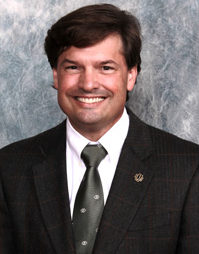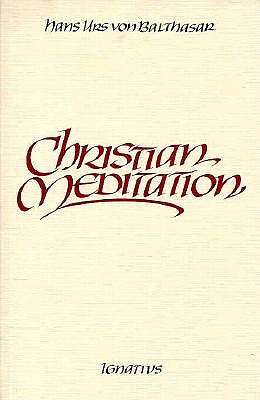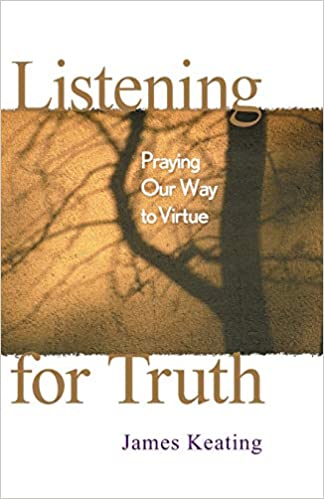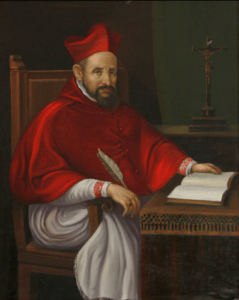CHAPTER II
 The Abbot who is worthy to be over a monastery, ought always to be mindful of what he is called, and make his works square with his name of Superior. For he is believed to hold the place of Christ in the monastery, when he is called by his name, according to the saying of the Apostle: “You have received the spirit of adoption of sons, whereby we cry Abba (Father)” (Rom 8:15). Therefore, the Abbot should never teach, prescribe, or command (which God forbid) anything contrary to the laws of the Lord; but his commands and teaching should be instilled like a leaven of divine justice into the minds of his disciples.
The Abbot who is worthy to be over a monastery, ought always to be mindful of what he is called, and make his works square with his name of Superior. For he is believed to hold the place of Christ in the monastery, when he is called by his name, according to the saying of the Apostle: “You have received the spirit of adoption of sons, whereby we cry Abba (Father)” (Rom 8:15). Therefore, the Abbot should never teach, prescribe, or command (which God forbid) anything contrary to the laws of the Lord; but his commands and teaching should be instilled like a leaven of divine justice into the minds of his disciples.
Let the Abbot always bear in mind that he must give an account in the dread judgment of God of both his own teaching and of the obedience of his disciples. And let the Abbot know that whatever lack of profit the master of the house shall find in the sheep, will be laid to the blame of the shepherd. On the other hand he will be blameless, if he gave all a shepherd’s care to his restless and unruly flock, and took all pains to correct their corrupt manners; so that their shepherd, acquitted at the Lord’s judgment seat, may say to the Lord with the Prophet: “I have not hid Thy justice within my heart. I have declared Thy truth and Thy salvation” (Ps 39[40]:11). “But they contemning have despised me” (Is 1:2; Ezek 20:27). Then at length eternal death will be the crushing doom of the rebellious sheep under his charge.
When, therefore, anyone taketh the name of Abbot he should govern his disciples by a twofold teaching; namely, he should show them all that is good and holy by his deeds more than by his words; explain the commandments of God to intelligent disciples by words, but show the divine precepts to the dull and simple by his works. And let him show by his actions, that whatever he teacheth his disciples as being contrary to the law of God must not be done, “lest perhaps when he hath preached to others, he himself should become a castaway” (1 Cor 9:27), and he himself committing sin, God one day say to him: “Why dost thou declare My justices, and take My covenant in thy mouth? But thou hast hated discipline, and hast cast My words behind thee” (Ps 49[50]:16-17). And: “Thou who sawest the mote in thy brother’s eye, hast not seen the beam in thine own” (Mt 7:3).
Let him make no distinction of persons in the monastery. Let him not love one more than another, unless it be one whom he findeth more exemplary in good works and obedience. Let not a free-born be preferred to a freedman, unless there be some other reasonable cause. But if from a just reason the Abbot deemeth it proper to make such a distinction, he may do so in regard to the rank of anyone whomsoever; otherwise let everyone keep his own place; for whether bond or free, we are all one in Christ (cf Gal 3:28; Eph 6:8), and we all bear an equal burden of servitude under one Lord, “for there is no respect of persons with God” (Rom 2:11). We are distinguished with Him in this respect alone, if we are found to excel others in good works and in humility. Therefore, let him have equal charity for all, and impose a uniform discipline for all according to merit.
For in his teaching the Abbot should always observe that principle of the Apostle in which he saith: “Reprove, entreat, rebuke” (2 Tm 4:2), that is, mingling gentleness with severity, as the occasion may call for, let him show the severity of the master and the loving affection of a father. He must sternly rebuke the undisciplined and restless; but he must exhort the obedient, meek, and patient to advance in virtue. But we charge him to rebuke and punish the negligent and haughty. Let him not shut his eyes to the sins of evil-doers; but on their first appearance let him do his utmost to cut them out from the root at once, mindful of the fate of Heli, the priest of Silo (cf 1 Sam 2:11-4:18). The well-disposed and those of good understanding, let him correct at the first and second admonition only with words; but let him chastise the wicked and the hard of heart, and the proud and disobedient at the very first offense with stripes and other bodily punishments, knowing that it is written: “The fool is not corrected with words” (Prov 29:19). And again: “Strike thy son with the rod, and thou shalt deliver his soul from death” (Prov 23:14).
The Abbot ought always to remember what he is and what he is called, and to know that to whom much hath been entrusted, from him much will be required; and let him understand what a difficult and arduous task he assumeth in governing souls and accommodating himself to a variety of characters. Let him so adjust and adapt himself to everyone — to one gentleness of speech, to another by reproofs, and to still another by entreaties, to each one according to his bent and understanding — that he not only suffer no loss in his flock, but may rejoice in the increase of a worthy fold.
Above all things, that the Abbot may not neglect or undervalue the welfare of the souls entrusted to him, let him not have too great a concern about fleeting, earthly, perishable things; but let him always consider that he hath undertaken the government of souls, of which he must give an account. And that he may not perhaps complain of the want of earthly means, let him remember what is written: “Seek ye first the kingdom of God and His justice, and all these things shall be added unto you” (Mt 6:33). And again: “There is no want to them that fear Him” (Ps 33[34]:10). And let him know that he who undertaketh the government of souls must prepare himself to give an account for them; and whatever the number of brethren he hath under his charge, let him be sure that on judgment day he will, without doubt, have to give an account to the Lord for all these souls, in addition to that of his own. And thus, whilst he is in constant fear of the Shepherd’s future examination about the sheep entrusted to him, and is watchful of his account for others, he is made solicitous also on his own account; and whilst by his admonitions he had administered correction to others, he is freed from his own failings.


 An Introduction to the Christian Meditation and the first section entitled “The Mediating Word”
An Introduction to the Christian Meditation and the first section entitled “The Mediating Word”

 The Abbot who is worthy to be over a monastery, ought always to be mindful of what he is called, and make his works square with his name of Superior. For he is believed to hold the place of Christ in the monastery, when he is called by his name, according to the saying of the Apostle: “You have received the spirit of adoption of sons, whereby we cry Abba (Father)” (Rom 8:15). Therefore, the Abbot should never teach, prescribe, or command (which God forbid) anything contrary to the laws of the Lord; but his commands and teaching should be instilled like a leaven of divine justice into the minds of his disciples.
The Abbot who is worthy to be over a monastery, ought always to be mindful of what he is called, and make his works square with his name of Superior. For he is believed to hold the place of Christ in the monastery, when he is called by his name, according to the saying of the Apostle: “You have received the spirit of adoption of sons, whereby we cry Abba (Father)” (Rom 8:15). Therefore, the Abbot should never teach, prescribe, or command (which God forbid) anything contrary to the laws of the Lord; but his commands and teaching should be instilled like a leaven of divine justice into the minds of his disciples. Episode 3 -Listening For Truth– This episode, with Deacon James Keating and Kris McGregor, discuss rediscovering the soul through prayer. The interior life. Welcoming the other that lives within us and passing through the wall of suffering.
Episode 3 -Listening For Truth– This episode, with Deacon James Keating and Kris McGregor, discuss rediscovering the soul through prayer. The interior life. Welcoming the other that lives within us and passing through the wall of suffering.

 In his book De ascensione mentis in Deum — Elevation of the mind to God — composed in accordance with the plan of the Itinerarium [Journey of the mind into God] of St Bonaventure, he exclaims: “O soul, your example is God, infinite beauty, light without shadow, splendour that exceeds that of the moon and the sun. He raised his eyes to God in whom is found the archetypes of all things, and of whom, as from a source of infinite fertility, derives this almost infinite variety of things. For this reason you must conclude: whoever finds God finds everything, whoever loses God loses everything”.
In his book De ascensione mentis in Deum — Elevation of the mind to God — composed in accordance with the plan of the Itinerarium [Journey of the mind into God] of St Bonaventure, he exclaims: “O soul, your example is God, infinite beauty, light without shadow, splendour that exceeds that of the moon and the sun. He raised his eyes to God in whom is found the archetypes of all things, and of whom, as from a source of infinite fertility, derives this almost infinite variety of things. For this reason you must conclude: whoever finds God finds everything, whoever loses God loses everything”.